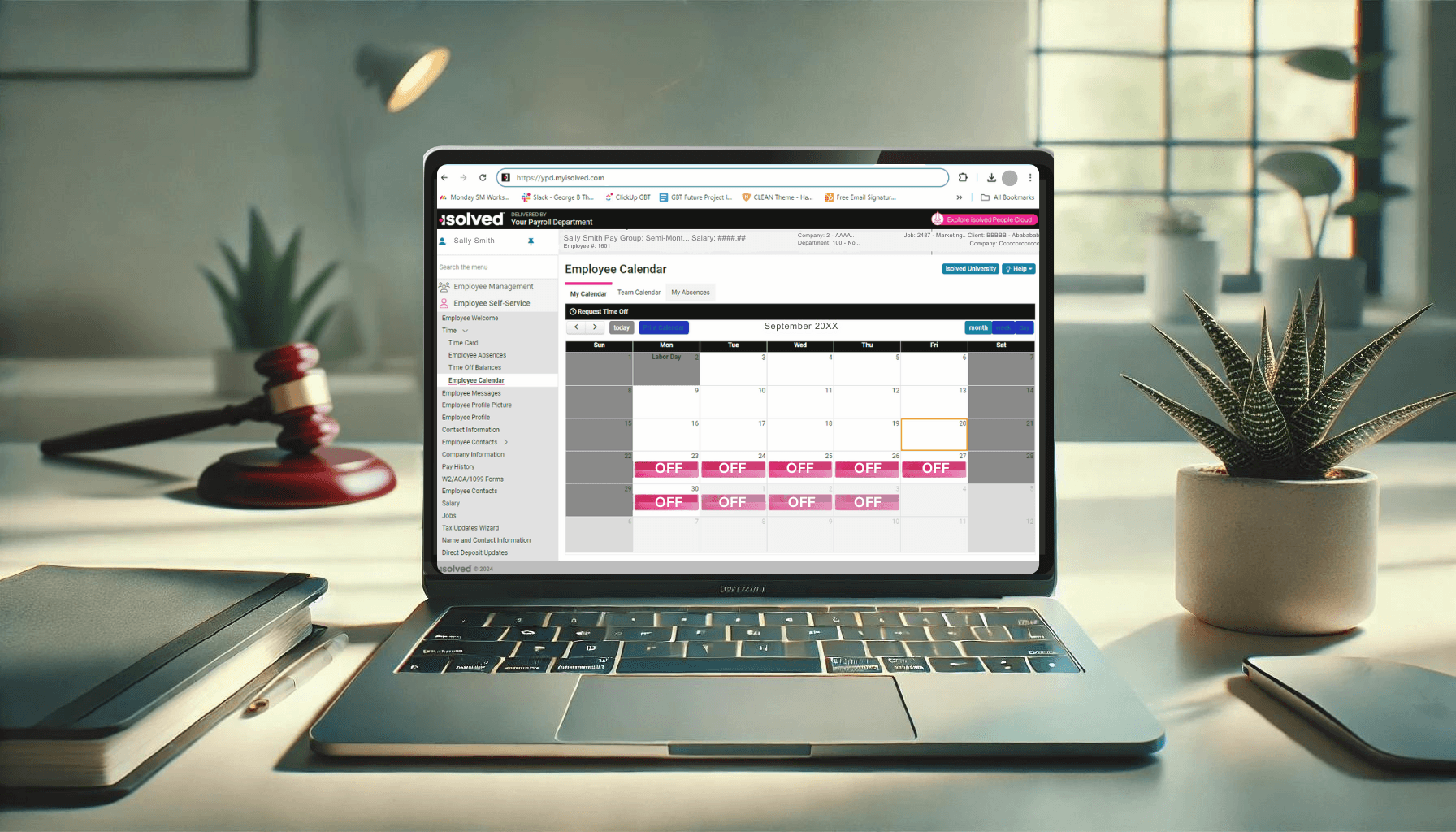1 min read
Employer Tax Credit for Paid Family and Medical Leave
As a small business owner, there’s a lot to manage and frankly, it can be daunting. The Family and Medical Leave Act (FMLA) and all...

Paid leave laws have become a critical aspect of employee benefits, especially for small to medium-sized businesses (SMBs). These laws are designed to ensure employees have the necessary time off for sickness, family emergencies, or personal reasons without facing financial insecurity.
However, navigating the complexities of these laws can be challenging for business owners. As a payroll director, I aim to shed light on why understanding and complying with these laws is crucial for your business's success and employee satisfaction.
Understanding the two main types of paid leave laws—insurance-based and earned leave—is essential for managing your payroll effectively.
In states with insurance-based paid leave, employees contribute to a state-managed fund through payroll deductions. This is similar to a tax that appears on their paycheck. When an employee needs to take leave, they apply through the state's system. The state reviews the application and, if approved, issues payments directly to the employee or the employer, who then distributes the funds. California's disability insurance is a notable example of this type of system. This model provides a safety net for employees without placing the entire financial burden on the employer.
Earned leave works on an accrual basis, where employees earn paid time off based on the hours they've worked. A common example is the rule that after working 40 hours, an employee earns one hour of sick leave. This method is particularly beneficial for part-time employees who typically haven't had access to paid leave. The specific rules and accrual rates can vary between states, but the overall concept is that employees earn their leave over time. This model ensures that even those who work fewer hours are entitled to some form of paid leave, promoting fairness and well-being in the workplace.
Compliance with paid leave laws isn't just a regulatory requirement; it's a safeguard against significant financial penalties. Fines for non-compliance can be steep, often ranging from $500 to $1,000 per violation per day. For instance, in Chicago, businesses can be fined $500 daily for each sick pay law violation. These laws are becoming more prevalent and strict across various states, making it imperative for businesses to stay informed and compliant.
Proper tracking and adherence to these regulations not only prevent costly fines but also foster a positive work environment by ensuring employees receive the benefits they are entitled to.
The advent of cloud-based payroll systems has revolutionized how businesses manage paid leave compliance. These systems, such as isolved, offer a streamlined way to handle the complexities of paid leave laws. Here's how they help:
Leveraging these modern payroll systems not only simplifies compliance for businesses but also frees up valuable time to focus on other aspects of their operations.
Investing in a comprehensive payroll system may seem like an additional expense, but it's a small investment compared to the potential fines associated with non-compliance. For instance, the paid leave and tax compliance features of isolved are included in their base package, which costs around $8 per employee per payroll. This expense is minimal when you consider the potential fines for non-compliance, which can quickly accumulate to thousands of dollars.
It's worth mention that these systems offer more than just compliance. They provide peace of mind, streamline administrative tasks, and reduce the risk of errors, ultimately saving your business both time and money. When you ensure you are compliant with paid leave laws, you also build trust with your employees, showing them that their well-being is a priority.
Paid leave laws provide significant benefits to employees, offering them security and flexibility during crucial life events. States with robust programs, like Colorado's paid family leave, allow employees to take up to 12 weeks off to care for a sick relative. The state manages the application process and ensures compliance, including payments to the employee and job protection during their leave.
Other states, such as California and Oregon, offer similar benefits for situations like pregnancy leave or caring for a new child. These laws not only provide financial support to employees during times of need but also ensure they can return to their jobs afterward. For businesses, this can lead to increased employee loyalty and job satisfaction, reducing turnover and fostering a positive workplace culture.
Since paid leave laws are state-mandated, the most reliable source of information is often the state government websites. A quick online search for "[State Name] paid family leave" or "paid leave law" should lead you to the relevant details. However, interpreting these laws can be complex, and understanding how they apply to your specific business situation can be challenging.
This is where an outsourced payroll service, like Your Payroll Department (YPD) can help. A payroll service has the knowledge and tools to help you navigate the complexities of these laws, ensuring you remain compliant, and your employees are well taken care of.
Understanding and complying with paid leave laws is essential for small to medium-sized businesses. Not only does it protect your business from potentially crippling fines, but it also helps you provide valuable benefits to your employees. Utilizing modern payroll systems can greatly simplify this process, ensuring you remain compliant, and your employees' rights are respected.
If you have questions about managing paid leave laws or need assistance in ensuring compliance, we're here to help. Reach out to Kaizen CPAs and YPD today. Click the 'Let's Chat' button to start a conversation—let’s find out if we're a good fit for your business.
1 min read
As a small business owner, there’s a lot to manage and frankly, it can be daunting. The Family and Medical Leave Act (FMLA) and all...

If you run a business, you know how fast employee leave laws can shift. One minute, everything’s running smoothly, and the next, there’s a new rule...

This is part II in our series on how to create meaningful year-end planning for your small business. This week’s focus? How to plan for staffing...